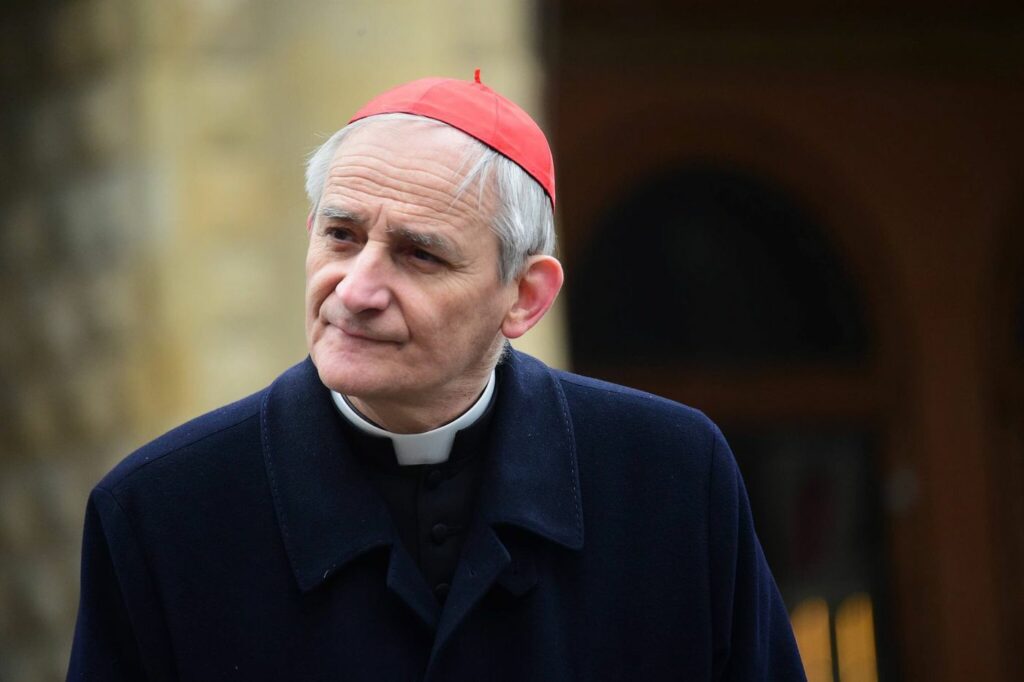Will the Italian bishops in turn resolve to launch a major investigation into child crime in the ecclesial circles of the peninsula? The question comes up with new acuity as the subject of a study on abuse is on the menu of the discussions of the Plenary Assembly of Italian bishops, gathered in the suburbs of Rome from Monday May 23 until Friday May 27. While Pope Francis opened the meeting with a closed-door speech without report, the victims and their supporters are increasing their pressure on the members of the Italian Episcopal Conference (CEI).
→ ANALYSIS. Sexual abuse in the Church: will the Italian bishops lift the omerta?
This action begins with an open letter from Italy Church Too (also the Italian Church), a coordination of associations born in February to give weight to these demands. “We ask for the full collaboration of the Italian Church in an independent investigation, carried out by credible and objective professionals, which sheds light on the abuses committed by the clergy in Italy, pleads the missive. We ask for the opening and making available of the archives (…), as well as the establishment of effective collaboration channels with Italian state institutions. »
A book from the archives
For the signatories, shedding light on the past must be accompanied by a commitment to redress. « We ask that the victims and their families be heard, welcomed and compensated »they demand, as well as « the elimination of the prescription for sexual abuse » or that the requirements concerning volunteers engaged with minors “be extended to clergy and lay people active in the Church”.
→ READ. Sexual abuse in the Church: in Italy, associations unite to « tear down the wall of omerta »
Perhaps even more than this open letter, it is a book to be published on Thursday May 26 which should reinforce the pressure on the bishops: entitled Agnus Dei, Gli abusi sessuali del clero in Italia (« Agnus Dei, The Sexual Abuse of the Clergy in Italy »), the work was compiled from the archives of the Rete L’abusoa small association listing the various data on cases of pedocrime committed by priests and on management by bishops. « A very worrying picture emerges, in the face of which the Church seems not to budge », promises the back cover.
In addition to the data used, the strength of the book comes from the personality of its authors. In the front row is Lucetta Scaraffia, known for having founded and directed until 2019 Gives Chiesa Mondothe feminine supplement of L’Osservatore Romano, official newspaper of the Vatican. It was notably under her leadership that the supplement had published notable articles on the abuses committed against nuns.
The possibility of a non-independent investigation
Another author of the book: Franca Giansoldati. This Italian Vaticanist works for Il Messaggero, the main newspaper of the city of Rome. Pope Francis likes to repeat that he reads this daily, thus arousing in turn a particular interest in the writings of the journalist. The trio of authors is completed by Anna Foa, from the prestigious Sapienza University.
“It is not a scandalous book, it is not a book against the Churchexplains Franca Giansoldati insistently to The cross. On the contrary, he must serve the Church to give an impetus so that these facts do not happen again. » Arguing for an independent study including a historical component – necessary for « better understand reality in order to face this plague » –, the Vaticanist, however, says she is skeptical about the decisions to come. “I fear that the bishops will choose to make a non-independent investigation based on data from the last few years alone. »
The choice of the new president of the CEI
This subject is on the agenda of this assembly which was already to be decisive, with the designation of the new president of the CEI, according to a procedure specific to Italy: the bishops had to vote on three names, including the pope had to choose. The procedure took place at the opening of the assembly and resulted in the appointment of Cardinal Matteo Zuppi, archbishop of Bologna and unanimously considered as arch-favorite.
→ READ. Matteo Zuppi, a cardinal close to Francis at the head of the Italian bishops
Known for his commitment to issues that are more social than doctrinal, negotiator for the Sant’Egidio community in the peace process in Mozambique in the 1990s, the Archbishop of Bologna had for him to already be a cardinal – a condition set by Francis for this mandate – but above all to be seen as particularly in phase with the current pontificate.
Known as a figure of « street priest », Matteo Zuppi seems a priori to correspond to the profile of bishops rather favorable to an investigation into sexual abuse. But to what extent and according to what modalities, this still remains entirely to be defined… even before convincing the rest of the episcopate to embark on this path.
——
The last presidents of the Italian Episcopal Conference
Cardinal Matteo Zuppi succeeds Cardinal Gualtiero Bassetti. Occupying this function since 2017, the archbishop of Perugia is 80 years old and does not seem to have forged a particular bond with the pope.
Before him, it was Cardinal Angelo Bagnasco who headed the CEI for a decade. Close to Benedict XVI, the one who was Archbishop of Genoa until 2020 was known as an intellectual, concerned with doctrine and ethics. He was a « papabile » in 2013.
From 1991 to 2007, Cardinal Vicar for the Diocese of Rome Camillo Ruini guided the CEI. He too was close to the pope during his tenure, John Paul II.
.

